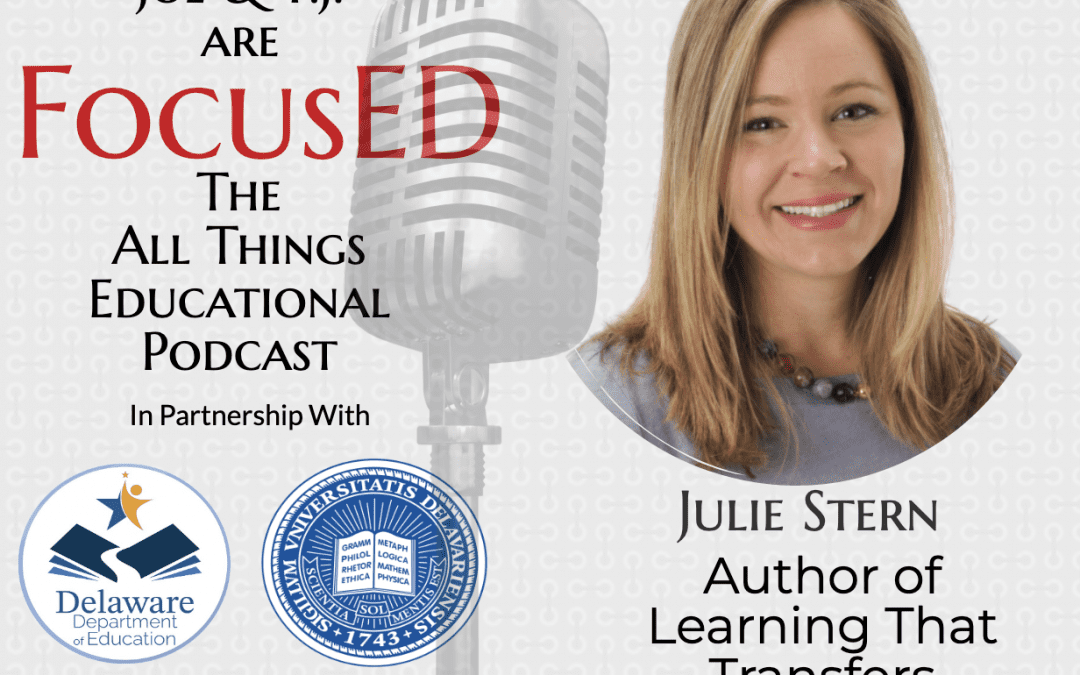
Season 4, Episode 3 of FocusED with Morgane Michael #FocusED
Morgane Michael Joins FocusED to Discuss the Need for Teachers to Go From Burnt Out to Fired Up…and More
This is Season 4, Episode 3 of FocusED, and it features our guest, Morgane Michael. It was originally recorded live for a studio audience in Delaware, provided as a professional development experience in collaboration with the Delaware Department of Education, the Delaware Academy for School Leadership, and The School House 302. Don’t miss what Morgane says about getting teachers From Burnt Out to Fired Up…and so much more.
_______________________________________
Morgane Michael Brings Tons of Experience to FocusED Listeners
Morgane Michael is the author of From Burnt Out to Fired Up. She has been an elementary school educator with the Greater Victoria School District in British Columbia, Canada, since 2008. Michael is a passionate advocate for social-emotional learning, kindness education, and educator well-being, and she leads professional development initiatives aligned with those efforts throughout her province.
Michael pursued her interest in developing positive school culture by carrying out kindness and self-compassion practices, promoting effective social collaboration, nurturing creativity, and building self-efficacy that is responsive to students’ needs. She established a culture of high expectations by launching her podcast, KindSight 101, in 2018. She has interviewed some of the world’s biggest names in education on the topics of kindness, well-being, self-compassion, and the promotion of positive school culture.
Morgane Michael is also the creator and founder of the Small Act Big Impact 21-Day Kindness Challenge, which seeks to promote and cultivate safe and supportive school culture. She shares insights from her podcast and lesson ideas on her blog, Small Act, Big Impact.
Morgane Michael received a bachelor’s degree in elementary education from the University of Victoria, British Columbia, and is currently completing a master’s degree in educational leadership. She lives with her family in Victoria, British Columbia.
________________________________________
FocusED Show Notes with Morgane Michael
Morgane calls the times we’re in “the merge lane back to normal.”
Don’t miss what she says about expressing our full selves as educators.
You want to hear what she says about teachers who have “a way of seeing us.”
We were thrilled to find out what she learned from Tim Ferriss.
Start building your “happiness jar” today.
Morgane shared practical strategies for self-care and passion ignition, including the use of the following questions programmed in your phone three times a day:
- What am I feeling?
- Where am I feeling the stress in my body?
- What do I need to move forward?
You have to listen to what she says about our 6 emotional needs.
She talks about weaving other industries into our practice of learning so that we follow non-educator work. Seth Godin, Adam Grant, Brene Brown.
What she says about deep work around our values is powerful.
Morgane talks about Atomic Habits by James Clear. Without strong systems, it’s hard to get to point B.
Thanks for listening to FocusED, an educational leadership podcast brought to you by TheSchoolHouse302 where we publish free leadership content. Go to the site, subscribe, and you’ll get all of our content sent directly to your email.
FocusED is your educational leadership podcast where our mission is to dissect a particular focus for teachers and school leaders so that you can learn to lead better and grow faster in your school or district with more knowledge, better understanding, and clear direction on what to do next.










 7 Mindshifts for School Leaders: Finding New Ways to Think About Old Problems.
7 Mindshifts for School Leaders: Finding New Ways to Think About Old Problems. 


